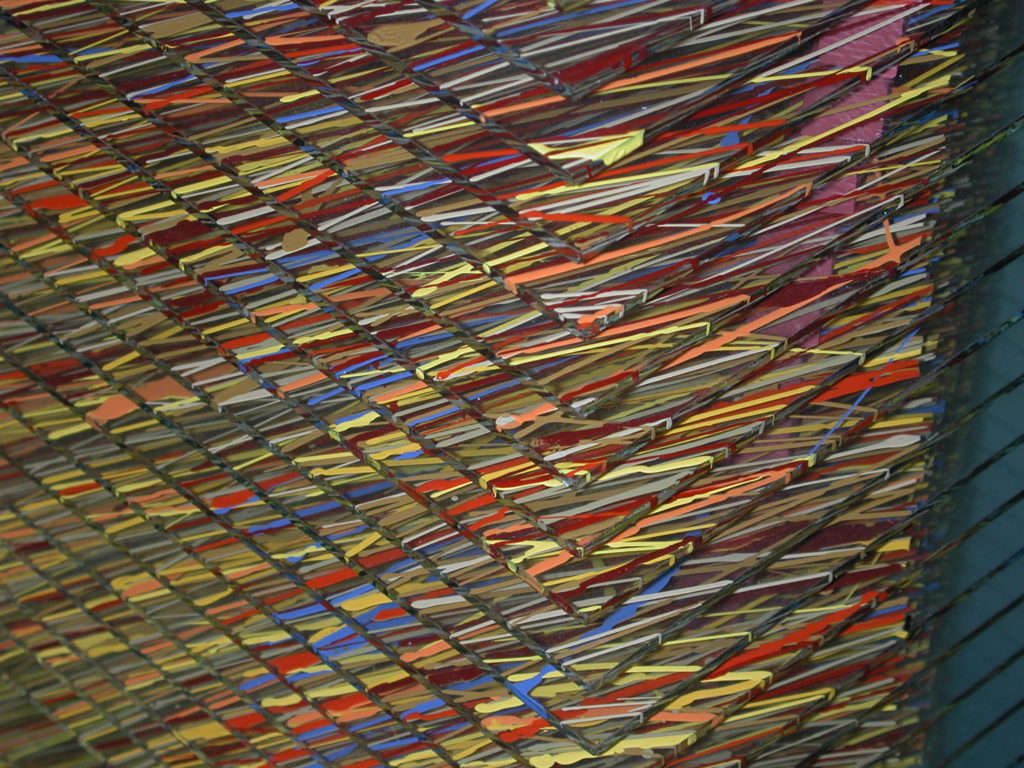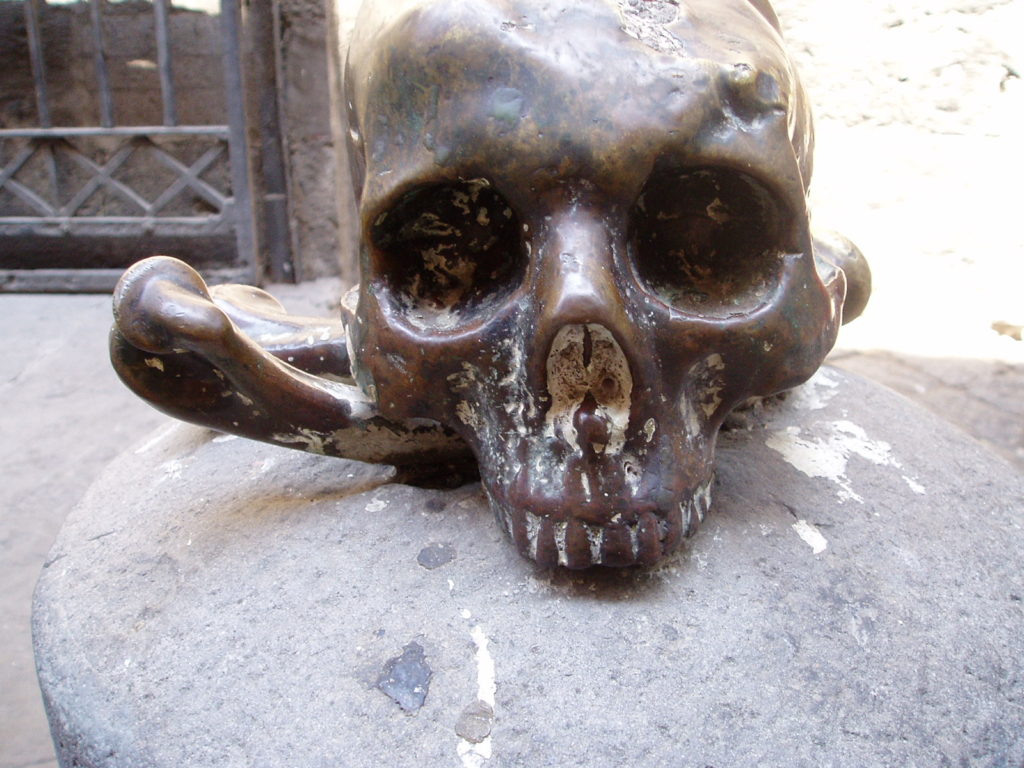Wanting to help edify me, an old friend who may recognise himself hastened to send me the YouTube link to a conference on Ukraine. “John Mearsheimer’s thesis, although it dates from 2016, is one hundred per cent my own,” added this friend, urging me to listen to it (you can find it on the platform). So what did this distinguished professor who had so impressed him have to say?
I would have been pleased to smile if the distressing banality of his remarks had not reminded me of earlier ones with far crueler consequences. But first, let’s sum them up. Ukraine, says the American strategist, is in no way of any strategic interest to the United States and he therefore proposes to “Finlandise” it to make it a buffer state. Why, he continues, should we upset Russia, a nuclear power to be reckoned with, with our NATO posturing on its own turf? What a waste it would be to throw such a precious potential ally into the arms of our worst rivals (the conference dates back to before the war!) We need Russia,” replies the good professor without batting an eyelid, “for Syria (infested, as we know, with fundamentalists, I might add). We still need Russia for Iran (to keep the mullahs in check, I might add), but above all to contain China, “our real competitor”.
So here we are! This is pure geopolitical forecasting from this ‘expert’, where the balance of power is analysed more than summarily in the light of the only reason that counts: the reason of the strongest. This is just the ticket for the Q-Annon fundamentalists, who are heartened by Donald Trump’s recent statements. Let’s be clear. We’ve known since Machiavelli that politics is an instrument of power relations. And it is up to politicians and their advisers to use it to defend what they consider to be the general interest of their nation. On the other hand, it is up to intellectuals, who are attached to the values of democracy, to denounce them if the former use them to mask their own interests. That is, of course, if democracy has not turned into oligarchy. In this respect, John Mearsheimer, as a right-wing analyst who defends American interests tooth and nail, is fully in his role, however cynical he may be. Moreover, he is merely reinforcing an old regionalist reflex inherent in all American administrations: the Monroe Doctrine.
But what about the intellectuals – particularly those trained in or belonging to Europe who, like my friend, have defended the diversity of cultures and the task of telling their history, the “unwritten history of the vanquished” that Walter Benjamin called for? “At the time when the Russian world wanted to remodel my little country in its own image, I formulated my ideal for Europe as follows: maximum diversity in minimum space; the Russians no longer govern my native country, but this ideal is even more in danger” wrote Milan Kundera in 2005.
Russia’s aggression towards Ukraine gives this recently deceased novelist’s observation all its sharpness and urgency. Why is this so? Because it highlights, beyond the stammering of history, the “strange defeat” (Marc Bloch) of intellectuals when they absolve themselves of their responsibility and bow to the reason of the strongest, ignoring once again “a far away country of which we know little”. These famous words by which Chamberlain, the British Prime Minister at the time of the Munich agreements in 1938, sought to justify the sacrifice of Czechoslovakia were, like the words of the American analyst, a geopolitical calculation to avoid war. Winston Churchill replied, “You wanted to avoid war even at the price of dishonour; you have dishonour and you will have war”.
The defeat of thought is not a new phenomenon; it accompanies the crisis experienced by the intellectual class at the time of the great upheavals of its era. The crisis we are experiencing has already had several avatars: from the “silence of the intellectuals” to “The defeat of thought”, the eponymous title of this article taken from Alain Finkielkraut’s 1984 book, via Allan Bloom’s The Closing of American Mind and Régis Debray’s caustic analyses of the terminal intellectual. In his latest book, La défaite de l’Occident (The Defeat of the West), Emmanuel Todd extended the defeat of thought to the whole of the old and new continents.
What are the causes of this? Back in the 1980s, Finkelkraut pinpointed the epicentre in the bi-secular duel between two concepts of nation: the ethnic idea and the elective idea of the nation. German Romanticism and French counter-revolutionaries defended the former by extolling the “national genius” and the patriotic and popular values associated with it. Individuals are the spearhead. The elective theory, on the other hand, sees the nation as a voluntary association of free individuals, an idea born of the Enlightenment and inherited by the French Revolution.
The philosopher’s view can be summed up as follows: whenever the ethnic theory prevails over the elective theory, when nationalism is victorious, Europe collapses. Samuel Blumenfeld wrote in the daily Le Monde: “We thought that the elective theory of the nation had won the day after the UNESCO Constitution was drafted in 1945, taking up the ideal of the Enlightenment. But no. In 1951, Claude Lévi-Strauss wrote in Race et histoire that the text in question was guilty of Western ethnocentrism. The idea of a cutting-edge civilisation held up as a model to Third World countries. As a result, the philosophy of decolonisation translates into a regression towards the local geniuses of German Romanticism”.
The hedonism of the consumer society has accelerated its backward leap, and the urban arts, born in its bosom, have suddenly found themselves promoted to the level of the great classics, provoking a new battle between the ancients and the moderns. Social networks, which privatise public space and exacerbate individualism, have amplified this trend. As a result, the cultural diversity so dear to Kundera and the transcultural experience that we fight for have been downgraded to the point where they are no longer perceived as a value, but as an avatar of multicultural consumerism: the “United Nations of Benetton”. As Nietzsche already anticipated, this confusion and even reversal of all values has the effect of neutralising freedom of reception, i.e. critical thought. Freedom of expression, without safeguards, has become the useful idiot of authoritarian regimes.
In this respect, the responsibility of the “organic intellectual”, as Gramsci called him, is precisely to put critical thought back on track as far as possible, not as a negative thought that judges, condemns and takes sides, but as a premise for an authentic politics of recognition, i.e. a politics of balance between the general interest and particular interests.
This balance is not new; it is already implicit in Article 4 of the Declaration of the Rights of Man. The well-tempered liberal-socialism that it implies is still an unthought of concept in the political arena today. Having been phagocytised in France by Macronism, it is more than ever the new continent to be explored for the Old Continent, which is looking for a second wind in next June’s elections. Can we pull the plug on its rugged individualism and put it at the service of a well-understood social, ecological and transcultural policy. That’s the challenge of the forthcoming European elections.
A lot of work for those who once believed in the value of transcultural experience. But they must not give in to the siren calls of the extremes or sit back and watch the train go by. One more effort…
Tag Archives: Capitalism
Transculturation And The Collapse Of Thought
 Wanting to help edify me, an old friend who may recognise himself hastened to send me the YouTube link to a conference on Ukraine. “John Mearsheimer’s thesis, although it dates from 2016, is one hundred per cent my own,” added this friend, urging me to listen to it (you can find it on the platform). So what did this distinguished professor who had so impressed him have to say?
Wanting to help edify me, an old friend who may recognise himself hastened to send me the YouTube link to a conference on Ukraine. “John Mearsheimer’s thesis, although it dates from 2016, is one hundred per cent my own,” added this friend, urging me to listen to it (you can find it on the platform). So what did this distinguished professor who had so impressed him have to say?
Russia : a lost ally
I would have been pleased to smile if the distressing banality of his remarks had not reminded me of earlier ones with far crueler consequences. But first, let’s sum them up. Ukraine, says the American strategist, is in no way of any strategic interest to the United States and he therefore proposes to “Finlandise” it to make it a buffer state. Why, he continues, should we upset Russia, a nuclear power to be reckoned with, with our NATO posturing on its own turf? What a waste it would be to throw such a precious potential ally into the arms of our worst rivals (the conference dates back to before the war!) We need Russia,” replies the good professor without batting an eyelid, “for Syria (infested, as we know, with fundamentalists, I might add). We still need Russia for Iran (to keep the mullahs in check, I might add), but above all to contain China, “our real competitor”.
Machiavel for ever
So here we are! This is pure geopolitical forecasting from this ‘expert’, where the balance of power is analysed more than summarily in the light of the only reason that counts: the reason of the strongest. This is just the ticket for the Q-Annon fundamentalists, who are heartened by Donald Trump’s recent statements. Let’s be clear. We’ve known since Machiavelli that politics is an instrument of power relations. And it is up to politicians and their advisers to use it to defend what they consider to be the general interest of their nation. On the other hand, it is up to intellectuals, who are attached to the values of democracy, to denounce them if the former use them to mask their own interests. That is, of course, if democracy has not turned into oligarchy. In this respect, John Mearsheimer, as a right-wing analyst who defends American interests tooth and nail, is fully in his role, however cynical he may be. Moreover, he is merely reinforcing an old regionalist reflex inherent in all American administrations: the Monroe Doctrine.
The intellectual responsability
But what about the intellectuals – particularly those trained in or belonging to Europe who, like my friend, have defended the diversity of cultures and the task of telling their history, the “unwritten history of the vanquished” that Walter Benjamin called for? “At the time when the Russian world wanted to remodel my little country in its own image, I formulated my ideal for Europe as follows: maximum diversity in minimum space; the Russians no longer govern my native country, but this ideal is even more in danger” wrote Milan Kundera in 2005.*
“Dishonour and war”
Russia’s aggression towards Ukraine gives this recently deceased novelist’s observation all its sharpness and urgency. Why is this so? Because it highlights, beyond the stammering of history, the “strange defeat” (Marc Bloch) of intellectuals when they absolve themselves of their responsibility and bow to the reason of the strongest, ignoring once again “a far away country of which we know little”. These famous words by which Chamberlain, the British Prime Minister at the time of the Munich agreements in 1938, sought to justify the sacrifice of Czechoslovakia were, like the words of the American analyst, a geopolitical calculation to avoid war. Winston Churchill replied, “You wanted to avoid war even at the price of dishonour; you have dishonour and you will have war”.
The defeat of thought: an old story
The defeat of thought is not a new phenomenon; it accompanies the crisis experienced by the intellectual class at the time of the great upheavals of its era. The crisis we are experiencing has already had several avatars: from the “silence of the intellectuals” to “The defeat of thought”, the eponymous title of this article taken from Alain Finkielkraut’s 1984 book, via Allan Bloom’s The Closing of American Mind and Régis Debray’s caustic analyses of the terminal intellectual. In his latest book, La défaite de l’Occident (The Defeat of the West), Emmanuel Todd extended the defeat of thought to the whole of the old and new continents.
What are the causes of this? Back in the 1980s, Finkelkraut pinpointed the epicentre in the bi-secular duel between two concepts of nation: the ethnic idea and the elective idea of the nation. German Romanticism and French counter-revolutionaries defended the former by extolling the “national genius” and the patriotic and popular values associated with it. Individuals are the spearhead. The elective theory, on the other hand, sees the nation as a voluntary association of free individuals, an idea born of the Enlightenment and inherited by the French Revolution
The ethnic theory
The philosopher’s view can be summed up as follows: whenever the ethnic theory prevails over the elective theory, when nationalism is victorious, Europe collapses. Samuel Blumenfeld wrote in the daily Le Monde: “We thought that the elective theory of the nation had won the day after the UNESCO Constitution was drafted in 1945, taking up the ideal of the Enlightenment. But no. In 1951, Claude Lévi-Strauss wrote in Race et histoire that the text in question was guilty of Western ethnocentrism. The idea of a cutting-edge civilisation held up as a model to Third World countries. As a result, the philosophy of decolonisation translates into a regression towards the local geniuses of German Romanticism”.
The hedonism of the consumer society has accelerated its backward leap, and the urban arts, born in its bosom, have suddenly found themselves promoted to the level of the great classics, provoking a new battle between the ancients and the moderns. Social networks, which privatise public space and exacerbate individualism, have amplified this trend. As a result, the cultural diversity so dear to Kundera and the transcultural experience that we fight for have been downgraded to the point where they are no longer perceived as a value, but as an avatar of multicultural consumerism: the “United Nations of Benetton”. As Nietzsche already anticipated, this confusion and even reversal of all values has the effect of neutralising freedom of reception, i.e. critical thought. Freedom of expression, without safeguards, has become the useful idiot of authoritarian regimes.
In this respect, the responsibility of the “organic intellectual”, as Gramsci called him, is precisely to put critical thought back on track as far as possible, not as a negative thought that judges, condemns and takes sides, but as a premise for an authentic politics of recognition, i.e. a politics of balance between the general interest and particular interests.
This balance is not new; it is already implicit in Article 4 of the Declaration of the Rights of Man. The well-tempered liberal-socialism that it implies is still an unthought of concept in the political arena today. Having been phagocytised in France by Macronism, it is more than ever the new continent to be explored for the Old Continent, which is looking for a second wind in next June’s elections. Can we pull the plug on its rugged individualism and put it at the service of a well-understood social, ecological and transcultural policy. That’s the challenge of the forthcoming European elections.
A lot of work for those who once believed in the value of transcultural experience. But they must not give in to the siren calls of the extremes right or lefet or sit back and watch the train go by.
One more effort my friend…
Auguste vs “August”
 Les dictateurs sont souvent des clowns tristes qui pour se dérider projettent leurs passion tristes cher à Spinoza sur le monde devenu leur carré de sable personnel. Là ils peuvent faire et défaire leur château à leur guise, comme des enfants capricieux, colériques et frustrés qu’ils ont été. La scène du « dictateur » où Charlot/Hitler fait virevolter le globe sur ses pieds est éloquente à cet égard. En vérité les dictateurs cherchent leur double qui les déridera, un peu beaucoup, passionnément de leur mélancolie rédhibitoire. On raconte qu’Hitler s’est fait souvent projeter le film de Charlot tout hilare de s’être fait démasquer par un sosie qui lui ressemblait tant. Je ne sais pas si cette histoire est vraie, mais une chose est sûre. Chaplin était un clown triste qui se jouait de l’esprit de sérieux et Hitler un triste clown qui se prenait au sérieux. L’un était ironique, l’autre sardonique. La semaine du 24 février lors de la marche l’Ukraine à Paris, une militante ukrainienne rappelant les anciennes déclarations d’Alexeï Navalny pour conserver l’Ukraine dans le giron russe, l’avait comparé à un clone de Poutine. Cette affirmation navrante sinon maladroite quelques jours après la mort de ce dissident exemplaire n’est cependant dépourvue de vérité. Car si Navalny ressemblait au despote du Kremlin, c’est parce que Poutine face à lui était devenu sa caricature, une marionnette ridicule et piaffante.
Les dictateurs sont souvent des clowns tristes qui pour se dérider projettent leurs passion tristes cher à Spinoza sur le monde devenu leur carré de sable personnel. Là ils peuvent faire et défaire leur château à leur guise, comme des enfants capricieux, colériques et frustrés qu’ils ont été. La scène du « dictateur » où Charlot/Hitler fait virevolter le globe sur ses pieds est éloquente à cet égard. En vérité les dictateurs cherchent leur double qui les déridera, un peu beaucoup, passionnément de leur mélancolie rédhibitoire. On raconte qu’Hitler s’est fait souvent projeter le film de Charlot tout hilare de s’être fait démasquer par un sosie qui lui ressemblait tant. Je ne sais pas si cette histoire est vraie, mais une chose est sûre. Chaplin était un clown triste qui se jouait de l’esprit de sérieux et Hitler un triste clown qui se prenait au sérieux. L’un était ironique, l’autre sardonique. La semaine du 24 février lors de la marche l’Ukraine à Paris, une militante ukrainienne rappelant les anciennes déclarations d’Alexeï Navalny pour conserver l’Ukraine dans le giron russe, l’avait comparé à un clone de Poutine. Cette affirmation navrante sinon maladroite quelques jours après la mort de ce dissident exemplaire n’est cependant dépourvue de vérité. Car si Navalny ressemblait au despote du Kremlin, c’est parce que Poutine face à lui était devenu sa caricature, une marionnette ridicule et piaffante.
L’ironie est un puissant dissolvant du pouvoir des autocrates. C’est ce tournant ironique qui a sans doute donné au combat de Navalny sa prégnance  et sa grandeur. Poutine le savait et le redoutait. Navalny a fait le pari que la prison dans laquelle il serait enfermé en revenant en Russie était aussi celle de Poutine même si elle était dorée. Pari risqué et dangereux, certes. Mais pari calculé. Voici à ce propos ce qu’en dit Vladimir Jankélévitch : « L’ironie qui ne craint pas les surprises, joue avec le danger… Elle l’imite, le provoque, le tourne en ridicule… même elle se risquera à travers les barreaux, pour que l’amusement soit aussi dangereux que possible, pour obtenir l’illusion complète de la vérité ; elle joue de sa fausse peur, et elle ne se lasse pas de vaincre ce danger délicieux qui meurt à tout instant. Le manège, à vrai dire, peut mal tourner, et Socrate en est mort ; car la conscience moderne ne tente pas impunément les créatures monstrueuses qui terrorisèrent la vieille conscience ».
et sa grandeur. Poutine le savait et le redoutait. Navalny a fait le pari que la prison dans laquelle il serait enfermé en revenant en Russie était aussi celle de Poutine même si elle était dorée. Pari risqué et dangereux, certes. Mais pari calculé. Voici à ce propos ce qu’en dit Vladimir Jankélévitch : « L’ironie qui ne craint pas les surprises, joue avec le danger… Elle l’imite, le provoque, le tourne en ridicule… même elle se risquera à travers les barreaux, pour que l’amusement soit aussi dangereux que possible, pour obtenir l’illusion complète de la vérité ; elle joue de sa fausse peur, et elle ne se lasse pas de vaincre ce danger délicieux qui meurt à tout instant. Le manège, à vrai dire, peut mal tourner, et Socrate en est mort ; car la conscience moderne ne tente pas impunément les créatures monstrueuses qui terrorisèrent la vieille conscience ».
Ces réflexions du philosophe français datent de la guerre froide. Elles demeurent plus que jamais d’actualité aujourd’hui à l’heure où l’on a enterré le dissident russe. Ces propos ont une autre vertu : celle de jeter une lumière inédite sur les liens que l’ironiste tisse avec l’autocrate. Et plus encore. Le modèle du clown triste, c’est l’Auguste. Son nom d’origine de l’argot berlinois qui veut dire « idiot ». Un dimanche de 1874, un garçon de piste du Circus Renz à Berlin trébuche sur la piste et s’effondre de tout son long dans la sciure. C’est l’hilarité générale. « Auguste » le clown qui fait écho au fou du roi du moyen-âge était né et aussitôt baptisé. Auguste renvoie aussi au premier empereur de l’Empire romain — Auguste — que les autocrates ont cherché à imiter depuis le Saint Empire romain germanique jusqu’au 3e Reich. Les vrais Augustes aujourd’hui ne
sont pas. ce que l’on croit.
Under The Sign of Capitalism
Notes on a never ending decline
Lamberto Tassinari
Everything that has been said and done from Cervantes to Philip Roth, from Alessandro Volta to Steve Jobs, from Linné to Kandel is under the sign of capitalism. Our times, modern and postmodern, should rightly be called the Capitalist Civilization. There are many variants of capitalism of course (with more or less state involvement) and there is not on Earth the ideal form of it. But now that real-socialism is dead and buried, market-financial capitalism is the reigning form of governance in all countries. Our democracy is indeed a “market democracy” where the management is committed to representatives chosen by the “people” in a quasi-farcical election process and the power given to the market forces and their tamers.

Democracy is a word, at the best, a “work in progress”. But no one is at work on it!
Clearly, capitalism has been the driving engine of progress, material and intellectual for two centuries. Real, effective, swift if ferocious progress such as no other economic system couldn’t ever have afforded. Market, in principles, means freedom for goods to circulate and ideas, and later people also. Because capitalism is incompatible with the political-economical system from which it has progressively emerged, feudalism. Men have to be freed in order to consume the goods that they are obliged to produce. It is a historical evidence that democratic forms weren’t never developed in a non capitalist society. At a certain extent we witness to the equation between capitalism and democracy. Consider that feudal and “socialist” societies like Japan and China had no choice but to adopt the capitalistic way of production in the 20th century because capitalism is the fastest way to develop economically. But in the fully “developed “ countries of ours, capitalism has completed its “democratic” mission and it is now exhausting our bodies and souls. As you know we reached the limit in the mid 1970 when it became clear that the “capitalistic civilization” could not produce any more progress, freedom nor liberties. Fifty years since that limit, its never ending decline shows the magnitude of the disaster. Not just the ecology. Look around. All IT touches become capitalistically infected:
health, science, education, art, food, sport, everything.
The mainmise or the stranglehold …..
Visual arts and the novel
The cultural industry: the fate of art and the necessary, inevitable euthanasia of its aura. What is the destiny of novel? Masterpieces and the printing business.
Industry
Why the electric car was killed back in the Thirties?
Tesla well before being a fashionable car was a mad Serbian genius who emigrated to the United States at the beginning of the last century and in the Thirties had already developed several electric devices, essential to the progress of our modern life among which a perfectly functional electric car.
Health
Why the immunotherapy in cancer research has been discouraged?
Tutto o quasi quello che sappiamo e facciamo è tinto di capitalismo. Per capitalismo intendo quella forma di produzione di merci e di rapporti sociali cominciata con la nascita della civiltà borghese intorno al Mille e poi lentamente evoluta, per così dire, fino alla rivoluzione industriale e al decollo pienamente capitalistico verso la metà del 19° secolo.

The spinning Jenny, il telaio a vapore del 1770 in Inghilterra e Germania poi, questo è l’avvio ruggente del Kapitalismus ma preceduto da secoli di lento building up, esattamente come un cancro, piano piano, la rinascita delle città con i Carolingi e i comuni e la società borghese, dei borghi, e da noi Boccaccio, tutto questo lavorio è proto-proto capitalista, Marx si occupa del fenomeno in fase adulta, compiuta e pensava che si potesse hegelianamente rovesciare con la logica! Il capitalismo puro, ideale è assolutamente senza Stato, il Mercato è lo Stato, che con mano invisibile aggiusta, regola tutto.

Nella modernità, dal proto al tardo capitalismo, sono nate e cresciute le idee e le cose che realmente pensiamo e facciamo. Compreso l’atavico, il primitivo, l’animale, ogni pensiero e ogni pratica è modellato dalla logica capitalistica del consumo e del profitto. Nella fase senile del capitalismo, come in ogni senilità, i difetti originari del sistema appaiono magnificati.

Credo che con questo stesso nostro corpo non si potrà avere un altro “corpo sociale” vedi La Pharmacie de Durkheim di Sophie Jankélévitch. Ci vuole tempo, ma di tempo ce n’è infinitamente. Quando il corpo sarà altro, corpo astratto, immateriale-informatico, proprio come un’anima – tanti di noi umani l’hanno immaginato, compreso Platone – allora avremo un altro corpo sociale, un’ altra società.

Ora, esistendo noi in questa fase, per così dire… lunga, non vale la pena darsi da fare anche perché la Morte che ci insidia e ci spinge a Fare, non esiste, è la curva della strada, è non essere visti, come dice Pessoa…ma è difficile crederci per più di un minuto!
[more to come]
THE MATERIAL SIDE OF THE IMMATERIAL. Facebook’s true nature
Lamberto Tassinari
Face and Book. Two powerful, divine words. The human Face, what is more meaningful, deep and troubling than our “face”?
The Book, what’s more essential to us than the concentrate of all human knowledge?
Antonin Artaud, the visionary, wrote
(…) le visage humain n’a pas encore trouvé sa face (…) la face humaine telle qu’elle est se cherche encore avec deux yeux, un nez, une bouche, / et les deux cavités auricuaires qui répondent aux trous des orbites comme les quatre ouvertures du caveau de la prochaine mort. / Le visage humain porte en effet une espèce de mort perpétuelle sur son visage / dont c’est au peintre justement à le sauver / en lui rendant ses propres traits…
Sacred face though, it is the mirror on which the invisible inside sends signs to the eyes and to the expressive little wrinkles on the side of your mouth. Our face has been kidnapped by the market and, together with the book, became the appealing symbol, the web in which two billion souls got entangled. Instant communication and exposure of the self were the dreamlike promises.

Everyone could finally tell their stories, show their faces and have, in exchange, multitudinous stories and faces from the wide world. A nightmare is a dream turned awry and that is what happened: the pure immaterial creation gave birth to the usual, heavy, mercantile output. As everything in our capitalistic civilization is driven by profit, Facebook’s ugly face was absolutely predictable. Guy Debord verily asserted in 1967 «Economy transforms the world, but it only transforms it in the world of economy”. He perfectly described the condition of our extreme alienation in which we are living « Le spectacle n’est pas un ensemble d’images, mais un rapport social entre des personnes, médiatisé par des images.». Which is the portrait of Facebook’s actual functioning. The new financial, immaterial capitalism extended its dominion at the planetary level with means fifty years ago still unknown to Debord but that he could perfectly foresee : « Le spectacle est le capital à un tel degré d’accumulation qu’il devient image », prophetically announcing Facebook’s empire:« Le spectacle est le moment où la marchandise est parvenue à l’occupation totale de la vie sociale. » Merchandise has filled our entire existence: our inner selves confessed everything – desires and data – to Facebook which treated all of this, rightly, as goods.
We are in such a dystopian condition that utopia becomes, once again, the only option. Utopian democracy which will be reality only when the economy would have lost its monetary meaning and all its primitive components – work, value, merchandise, money – will vanish with all the monsters born within the world of economy.

